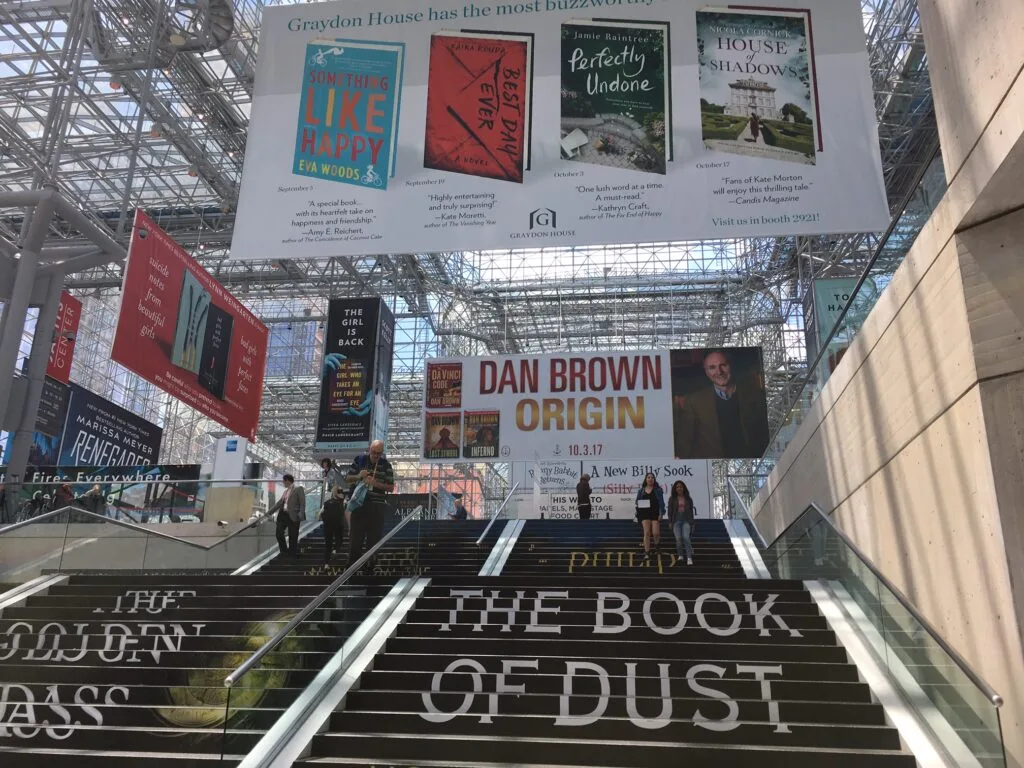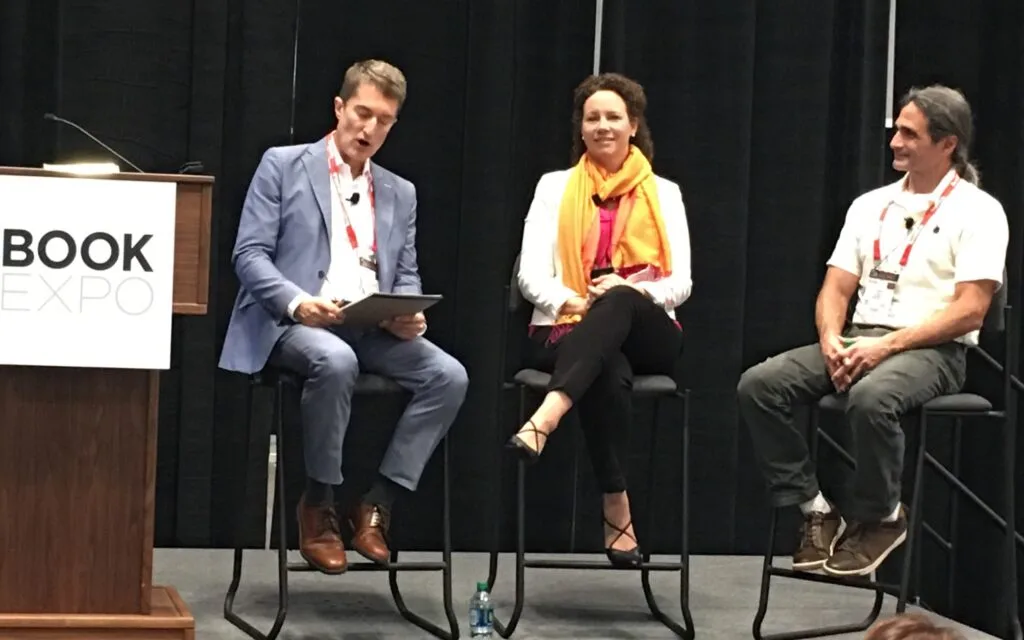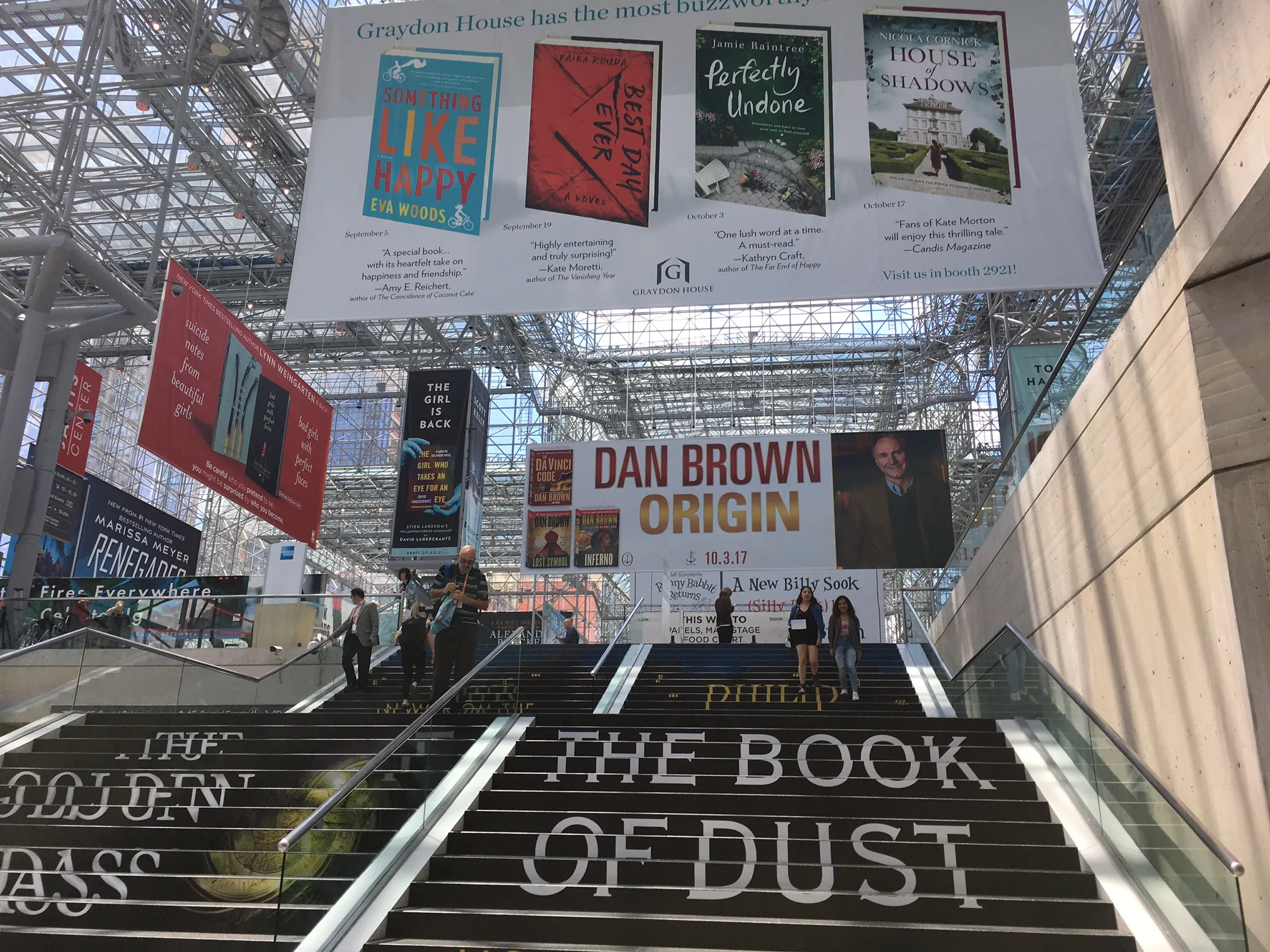
US indie author Laura Morelli won a starred review in PW for her debut novel
Reflecting after her recent trip to Book Expo, art history professor and indie author Laura Morelli addresses the contentious issue of indies seeking reviews in trade publications. Many advisers in the world of self-publishing counsel against even bothering to try it, citing odds stacked against indies and questioning the marketing value of such an achievement, but Laura begs to differ – and offers some great advice on how to go about applying for a review in leading US publishing trade magazine, Publishers Weekly, in case her argument persuades you to give it a try.
It’s common wisdom that reviews are critical to an author’s success, no matter what the path to publication. Many of us spend time and energy cultivating reader reviews on Amazon, Goodreads, and other sites.
But what about editorial reviews in industry publications? Do they make a difference for indie authors? I’ve just returned home from BookExpo 2017 in New York City, where I thought a lot about this question.

Book Expo
Drawing on Her Talk at Book Expo
Book Expo is an annual trade fair primarily designed around the Big Five publishing houses. It has never been a major venue for indie authors and this year’s fair was scaled down even more than in the past. In addition to the two-day industry trade fair, there was a strong focus on BookCon, showcasing blockbuster books and celebrity authors.
However, on the fair’s Author Market Stage, a number of presentations were of value for self-published authors. Booklife, a division of Publishers Weekly dedicated to indie authors, invited me to speak on a panel about the importance of reviews. Joining me was Carl Pritzkat of Booklife and Bill Gourgey, the author of the Glide science fiction trilogy as well as a Young Adult series called Cap City Kids.

Laura Morelli's Book Expo panel in action
Bill Gourgey and I both earned starred reviews in Publishers Weekly for our self-published titles. Bill’s science fiction novel, NuLogic: Rise of the Neos, and my own historical novel, The Gondola Maker, earned the distinction of a starred review, which means that the editors of Publishers Weekly marked them as exceptional books.
Benefits of a PW Review
Why did we submit our books for a review in Publishers Weekly – and why should you?
- It’s free! Up until a few years ago, it cost money to submit your title to PW for consideration. Today, a number of book review publications still charge for editorial reviews. But think about it… How much weight does a review carry if you “paid to play?” A review based on editorial curation rather than fees carries more weight.
- It’s a mark of quality and credibility. Publishers Weekly does not distinguish between titles published traditionally or independently. It’s a true level playing field where great books rise to the top, no matter how they came to market.
- You can leverage your review. You can use your PW review for promotional purposes on your website, your Amazon page, or on the book itself.
- You may get more bookstore and library orders. My PW starred review for The Gondola Maker prompted orders from bookstore and library staff, who rely on Publishers Weekly to guide their purchasing decisions.
- You may see your name in lights! Author Bill Gourgey says that his starred PW review prompted a producer from Sony Pictures to come knocking on his door.
How to Apply for a Review
Just go to Booklife.com to register your book and submit it for review consideration. Here are a couple of things you should know:
- Only a small percentage of books that are submitted are reviewed. PW receives over a thousand books a month, and cannot review them all.
- You should make sure your book is as good as it can possibly be before submitting. Booklife provides a checklist so that you can evaluate whether your book is ready to submit.
What’s Next for Indies at Book Expo?
At this year’s fair, opportunities for independent authors included:
- paying a steep price for a small table on the show floor
- paying slightly less to have your book exhibited alongside many others
- a free five-hour Author 101 course sponsored by Booklife and Ingram Spark
- a few valuable educational panels and discussions, like the one I joined, part of the price of admission
Going forward, it seems that some of the more exciting opportunities for indies are book events that operate concurrently or in conjunction with the larger industry book fairs (like ALLi’s Indie Author Fringe). A new New York Rights Fair has just been announced for 2018.
More virtual and in-person opportunities for indie authors are cropping up, so stay tuned!
OVER TO YOU What's been your experience of seeking and/or achieving reviews in PW or any other major publishing trade magazine? Do you have tips to add to Laura's list? Please feel free to share them via the comments box.
#Selfpub #authors - how to apply for a @PublishersWkly review - by @LauraMorelliPhD Share on XOTHER USEFUL POSTS ABOUT BOOK REVIEWS FROM THE ALLi ARCHIVE





So, the advice is to… go to another article to look for advice? That particular list from Booklife is quite well known. I wish this article was filled with more substance.
BookLife is not a trusted resource for indie authors, and contains a number of articles shilling for extremely disreputable companies such as Author Solutions (who advertise with PW/BookLife). Writers should keep this in mind.
I advise authors to stay away from Booklife completely.
I am an 84- year old who wrote a collection
of in- your-face poems … Moments in the Mirror. This is a self- published collection
of ” itty – bitty- shitty – ditties” that deserve to be reviewed because this collection presents
an alternate face of poetry : the short form
with an instant message that dares to expose our ” less – than-perfect and hesitant selves”…. serious fun!
REAL reviews are terribly tough to come by!
This is an invitation!!
Hannie Voyles
I’ve put in for a BookLife review and am still waiting. Hopefully it will come through. I certainly can’t afford to pay for a Kirkus Review or other, and I don’t know how effective it would be on sales, anyways. One thing I wanted to say is the BookLIfe makes it very clear that you can’t advertise your BookLife review as a Publisher’s Weekly review. In this way, it means that those who know the difference between the two will know instantly that your book is self-published when they see a BookLife review. I think it’s still worth pursuing, especially because it’s free and the author can choose to use it for promotion win whatever way works best.